For details on our current shipping information, please visit our FAQ page here.
If you still have any questions, please contact us here.
No products in the cart.
Continue shoppingNo products in the cart.
Continue shoppingNo products in the cart.
Continue shoppingUS$19.37
A complex and intense Pacamara coffee with a winey red fruit character and a sweet chocolaty finish.
| Weight | 0.311 kg |
|---|---|
| Dimensions | 15 × 7.5 × 23 cm |
| Cultivar | |
| Flavour Notes | |
| Producer | |
| Country | El Salvador |
| Region | Tecapa-Chinameca, Usulutan |
| Process | Semi-washed |
| Harvest | |
| Roast Profile | |
| Contents | Whole Coffee Beans |
| Bag Size | 250g |
Out of stock
This is by far the best Pacamara coffee I have tasted from Los Pirineos in many years. In fact I believe it is one of the best coffees I tasted in 2023. With a complex winey ripe red fruit flavour, medium intense acidity and rich mouthfeel, it is a coffee that keeps on giving while you are drinking it. There is a reason why Los Pirineos has won so many awards for their Pacamara coffees and this is a prime example of how good these coffees can be.
Often times you hear that Pacamara coffees can be a bit herbal or oniony in flavour, and I don’t disagree, but this coffee has none of those off-flavours. There are so many versions of Pacamara being planted as the cultivar is not uniform, probably because it was released before it was stabilised as a new hybrid cultivar. Maybe that is why there are so many different flavour profiles of this cultivar as well. Still, the Pacamara coffees from Los Pirineos always taste good and rarely have any of those herbaceous flavours. I believe this is because Los Pirineos was in fact one of the farms involved in the development of the cultivar, and today Diego produces high quality certified Pacamara seeds that he also sells to other farmers. That means he is able to produce a very stable type of Pacamara trees.
Fortunately this lot was big enough to be able to offer it as one of our selected “Christmas Edition” coffees this year. I don’t really have any particular criteria for selecting Christmas edition coffees other than that the coffee itself needs to be among the best we have in stock. A perfect coffee for the holidays and also a perfect gift to someone who loves coffee.
Pacamara is a crossing between Pacas and Maragogipe that can have very interesting cup profiles. It was released to farmers around El Salvador a bit early before it was a stable cultivar. It means you will get different outcomes when you plant the seeds from existing plants which means you can find really great tasting ones and some that are not so tasty. For many years our friend and coffee farmer Gilberto Baraona planted a great selection of Pacamara on his farm and he was able to get numerous top 10 placements at the El Salvador Cup of Excellence before he passed away. Fortunately his son, Diego is carrying on his legacy and continue to produce top quality Pacamara coffees.
All cherries are selectively picked by hand. Unripe and damaged cherries are removed by hand from the ripe cherries before processing.
Coffee cherries are de-pulped before they are either semi-washed. After de-pulping the parchment coffee with it’s mucilage on is sent to a mechanical mucilage remover where about 90% of the mucilage is removed by friction and washed off with clean water. After washing the clean parchment coffee is immediately dried.
The coffees we buy from Los Pirineos are all dried slowly on raised beds and most beds are covered with shade nets. During drying the coffees are raked throughout the day to ensure even drying. At night it gets covered to prevent condensation and the risk of the coffee gaining moisture in the drying process. Once the coffees are dried, they are stored in air tight grain pro bags before the they get milled and sorted on the farm. The coffees are also packed in vacuum packs on the farm before they are shipped to Norway.
For details on our current shipping information, please visit our FAQ page here.
If you still have any questions, please contact us here.
We strongly recommend using the correct measurements and brewing techniques when you brew our coffees. Use a digital scale both to measure water and coffee in order to get consistent results, and we recommend using between 60 to 70 grams of coffee per litre (1000g) of water, depending on the brewing method, water quality and coffee used.
We strongly recommend using VST filter baskets. Both the 18g, 20g and the 22g basket is great for our coffee. The VST filters makes it a lot easier to extract the espresso properly which gives a lot more sweetness in the cup. They are also more or less identical to each other which makes it easy to be more consistent when brewing on several groups at the same time. You can buy the filters on our webshop, just make sure they fit your machine (ours fits all La Marzocco machines and machines with 58mm filter baskets). With the VST 18g filter basket, we recommend the following brewing parameters: 18-19g freshly-ground coffee, 25-35s brewing time, 35-38g of final brew liquid in the cup, 93°C-94°C brew water temperature.
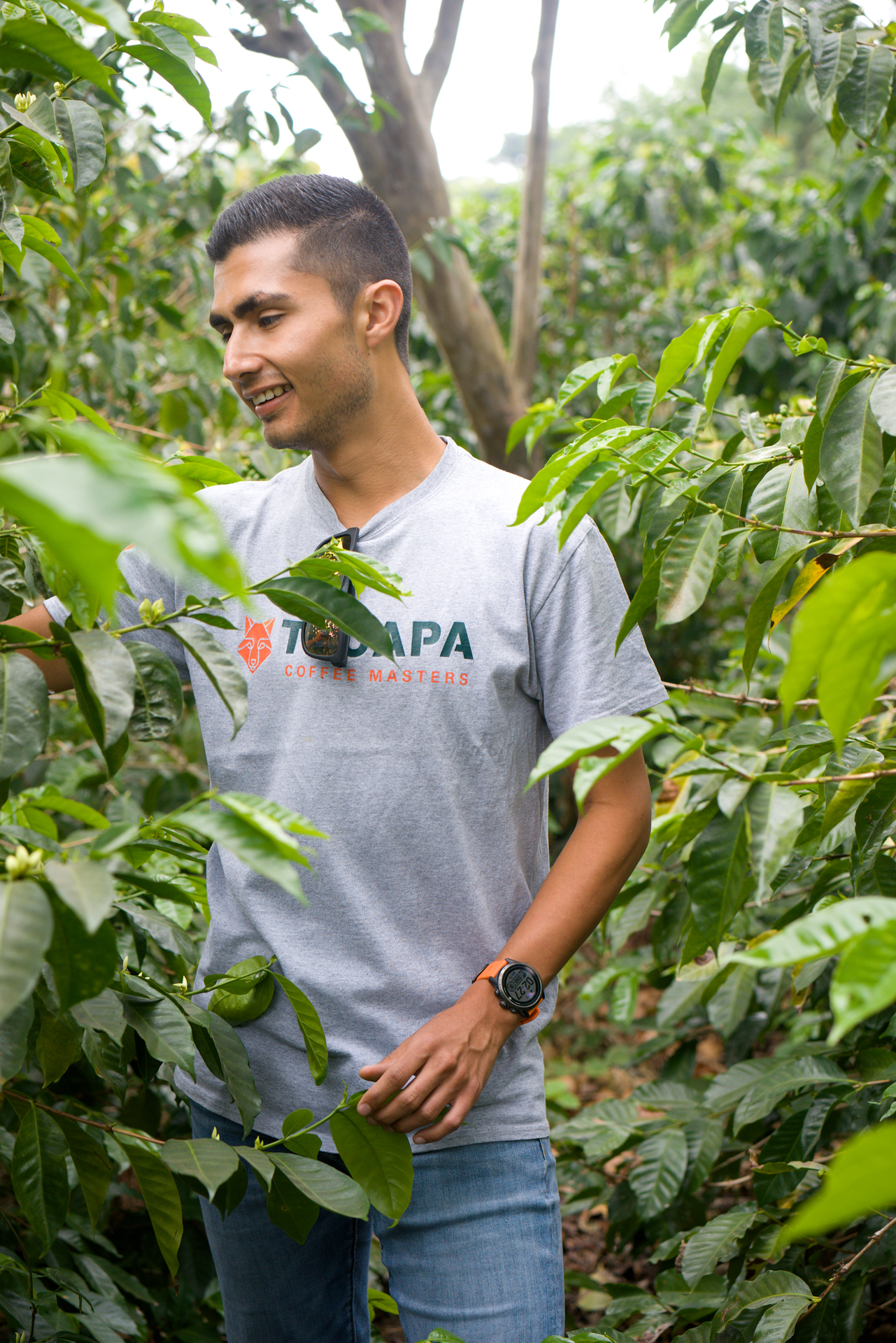
Diego is 5th generation coffee farmer and took over his family farm in 2020 after his father, our dear friend and legendary coffee producer Gilberto Baraona passed away. Aged 25, Diego was living in Barcelona studying and building his own life when he lost his father. The sudden and unexpected death of Gilberto forced Diego to make a life choice. Either sell the coffee farm that had been in his family for 130 years, or move back to El Salvador and become a coffee farmer. Fortunately Diego decided to continue working on his father’s and family legacy and now, three years later he is not only producing high quality coffees like his father but taking it to a new level.
We buy coffee directly from Diego and his team at Los Pirineos. They mill, pack and export their own coffee. In 2023 the cost of producing a pound (453g) of green coffee was around 2 US dollars. After adding the cost of milling, sorting, packaging and logistics Diego had a total cost of around 3 – 3,50 US dollars per pound. We paid on average 4,8 USD per lb ranging from 3,70 to 14 USD per pound depending on quality and availability. The coffee is imported by ourselves directly to Norway. We have been buying coffee from Gilberto and now Diego every year since 2010.
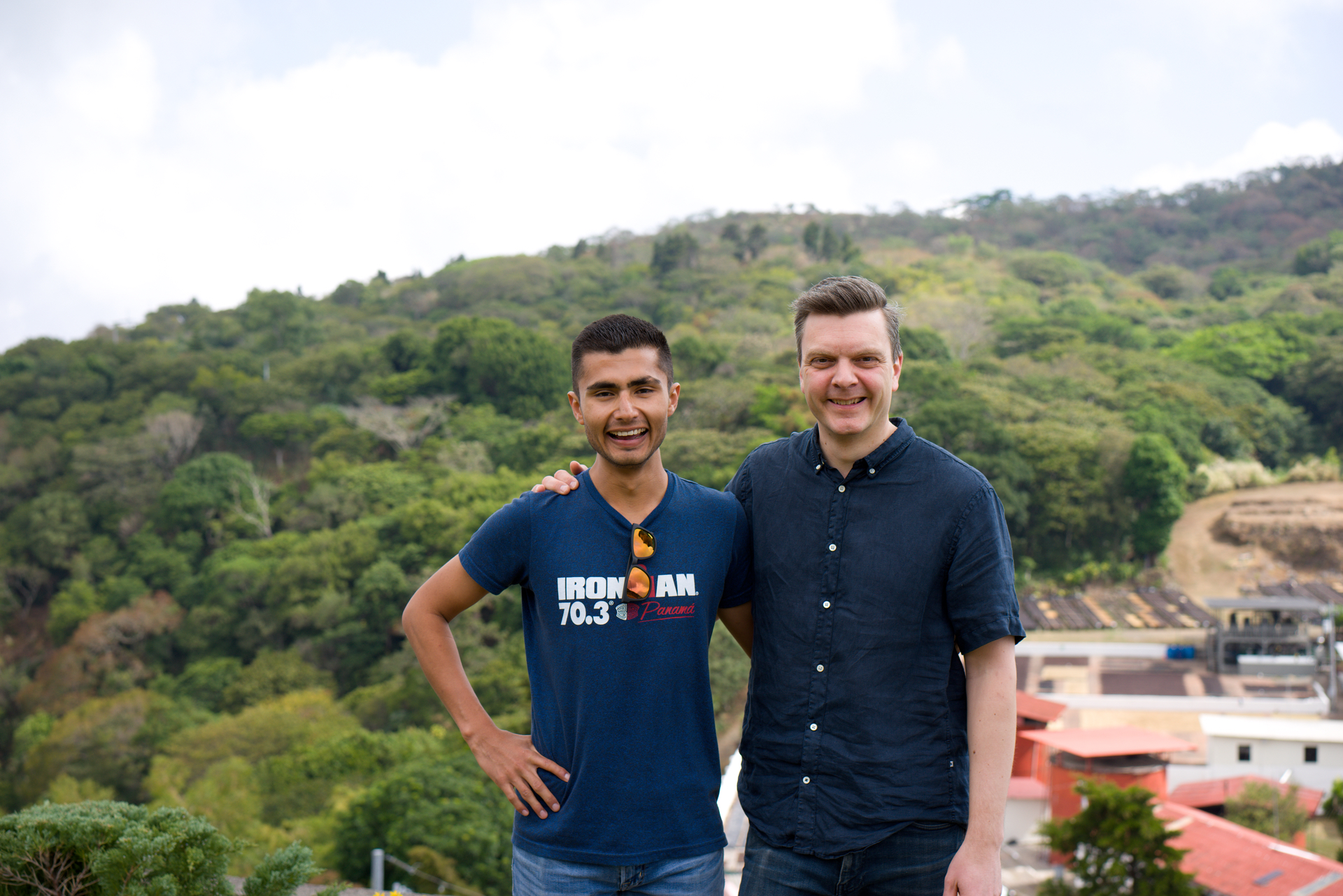
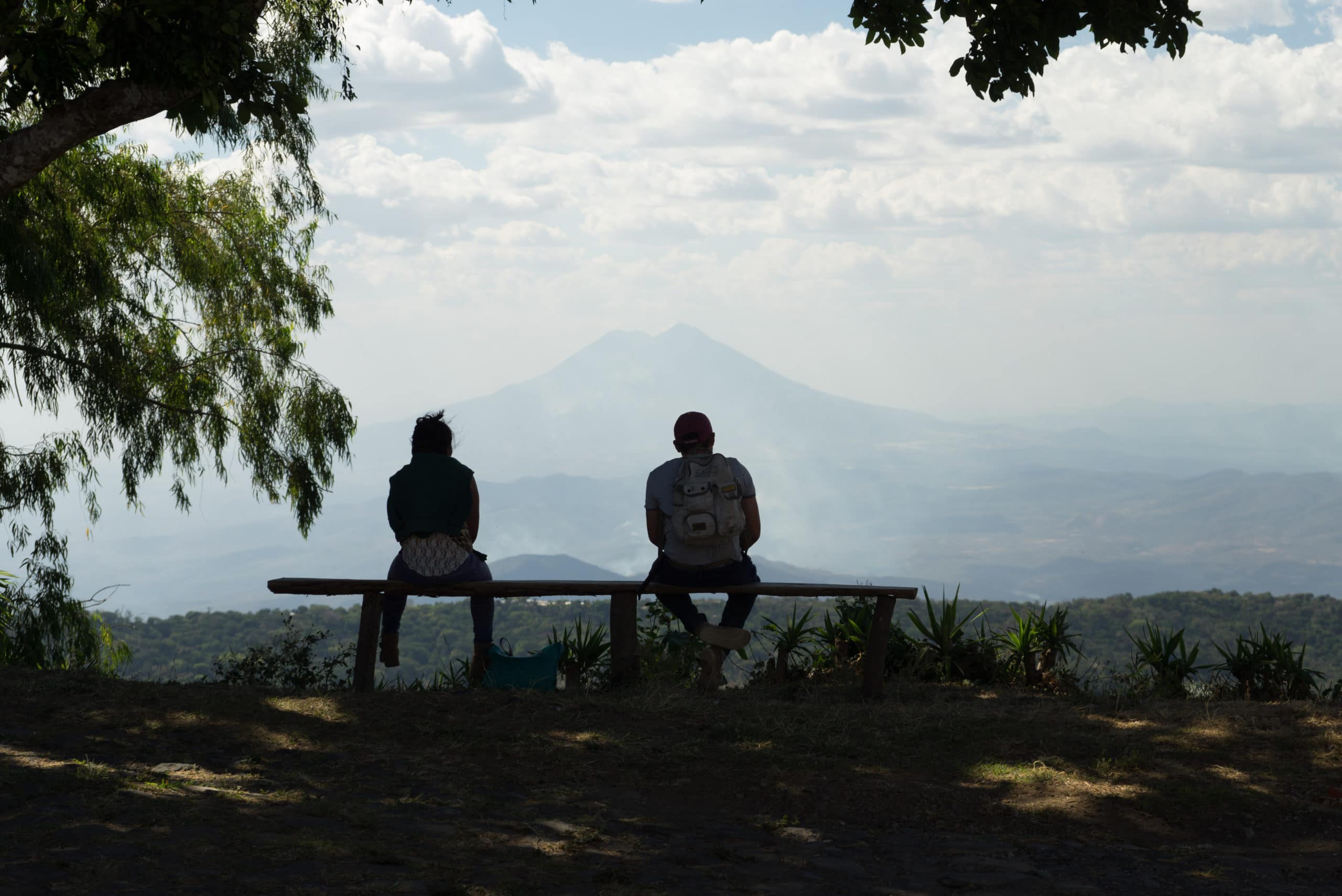
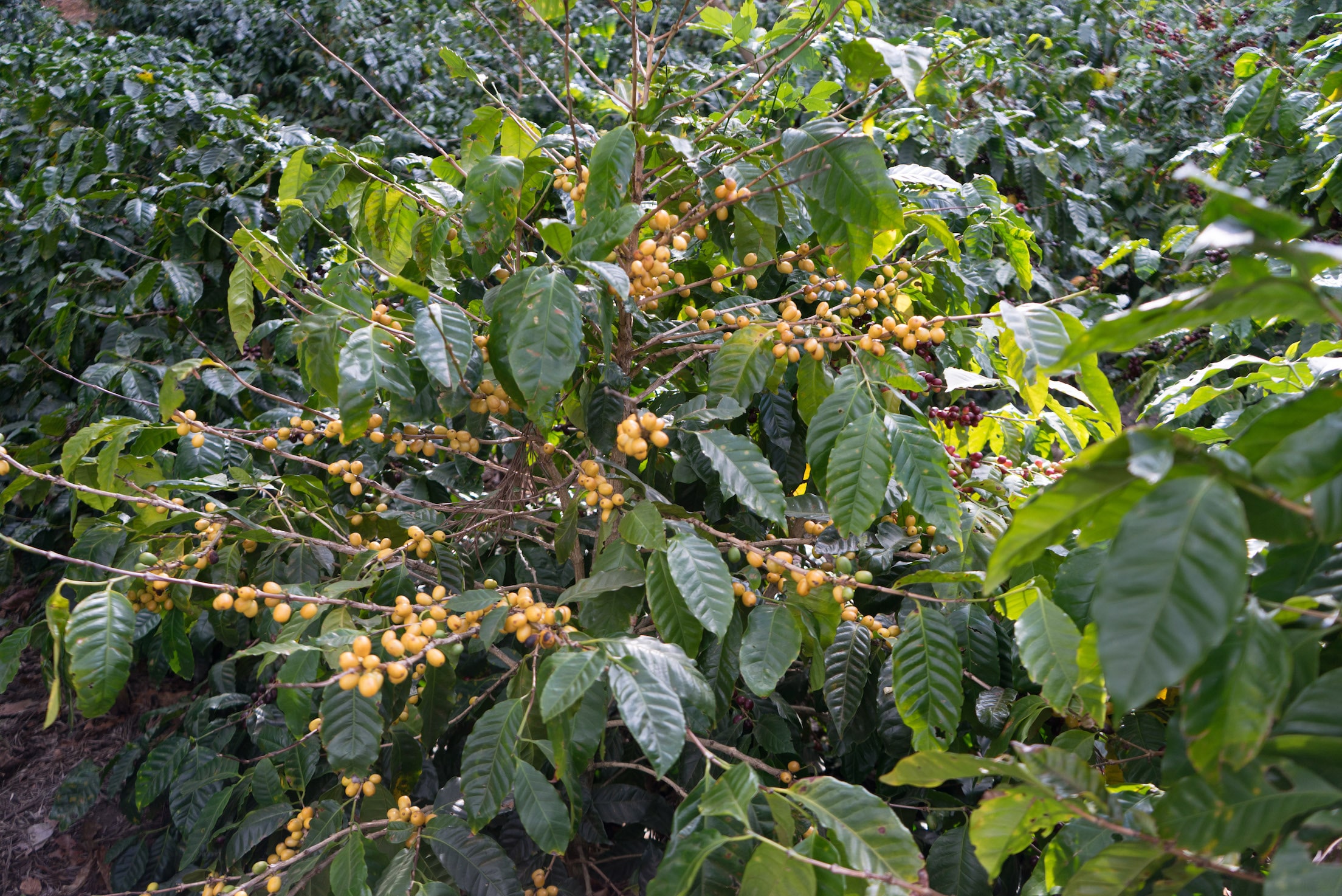
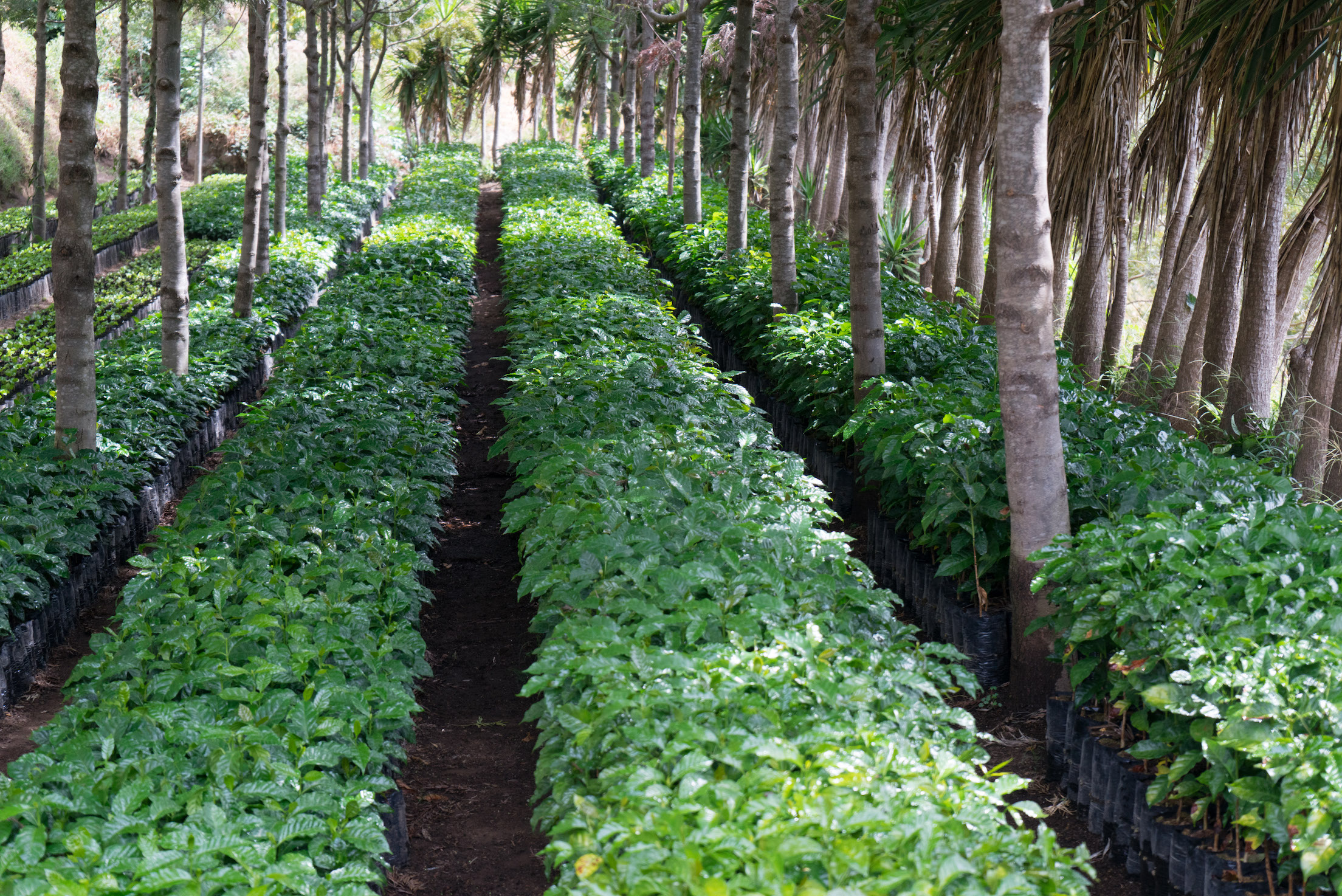
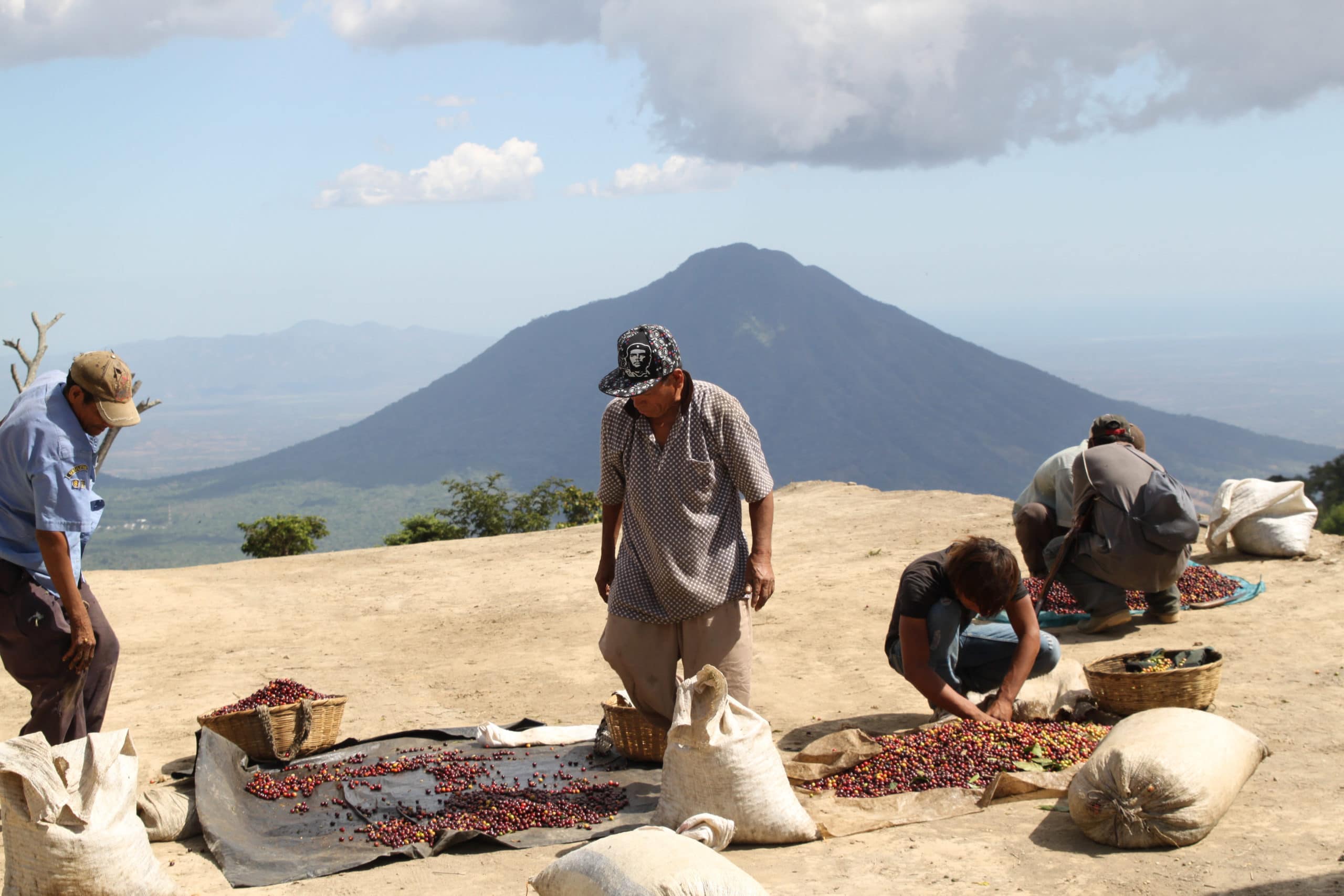
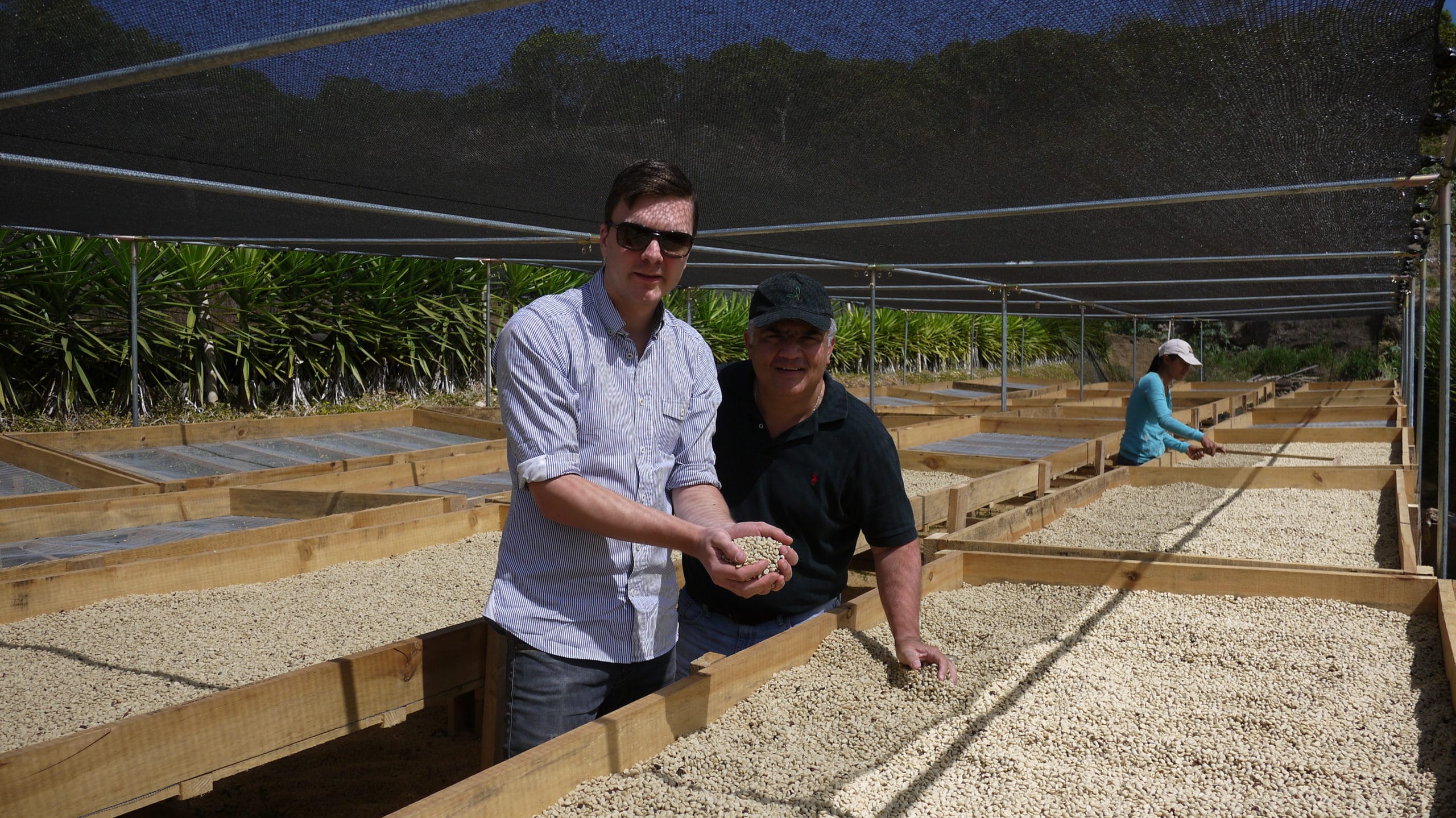
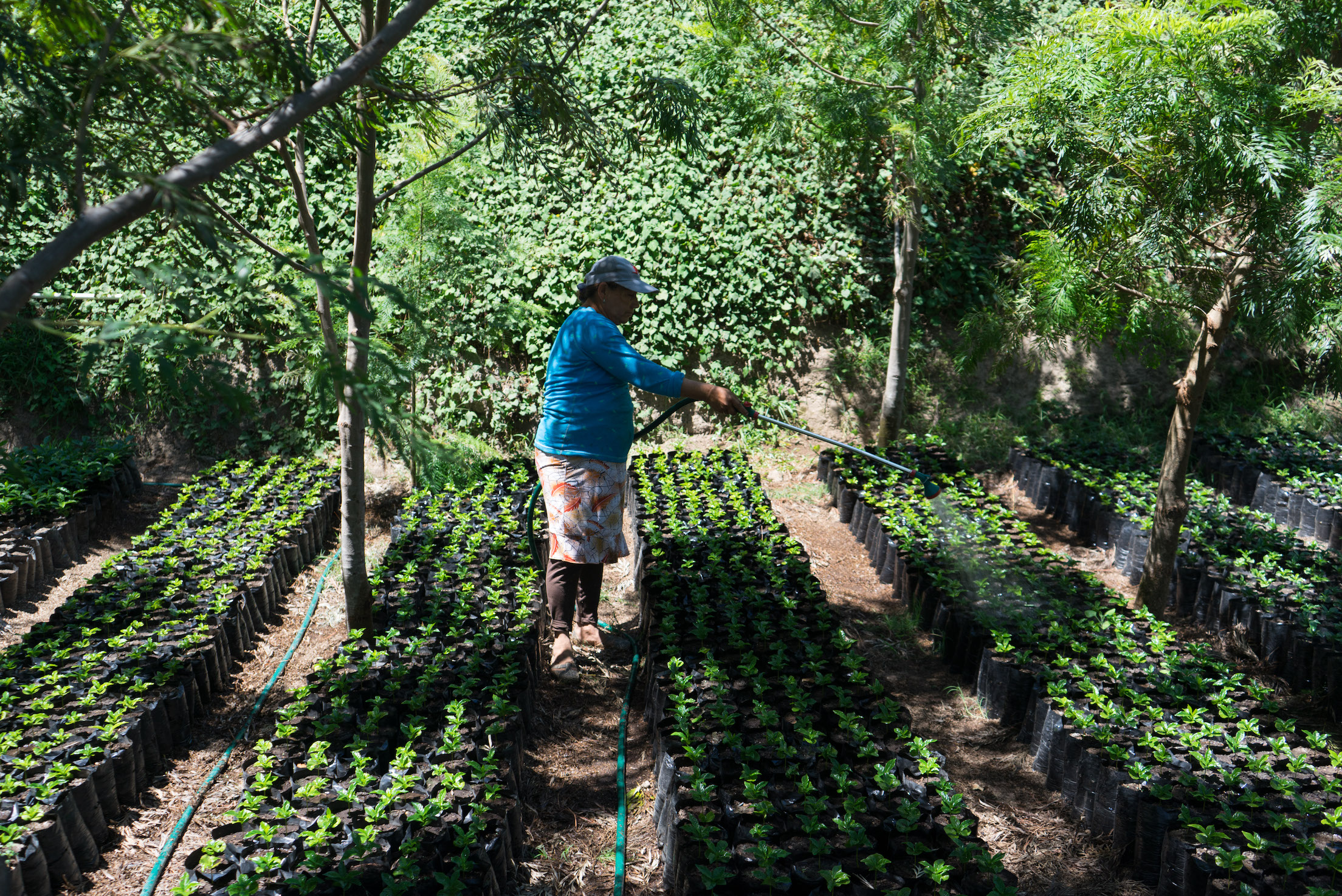
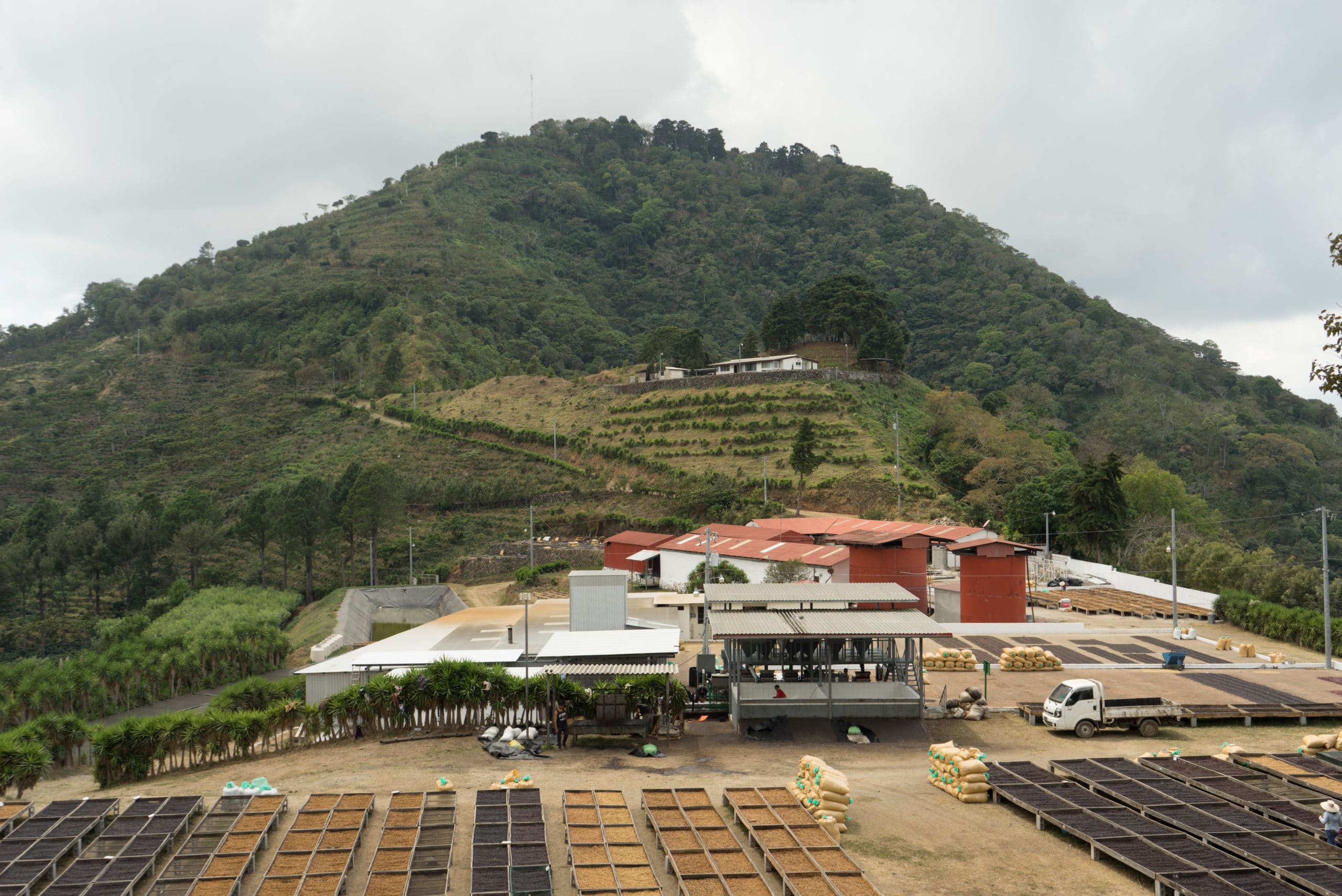
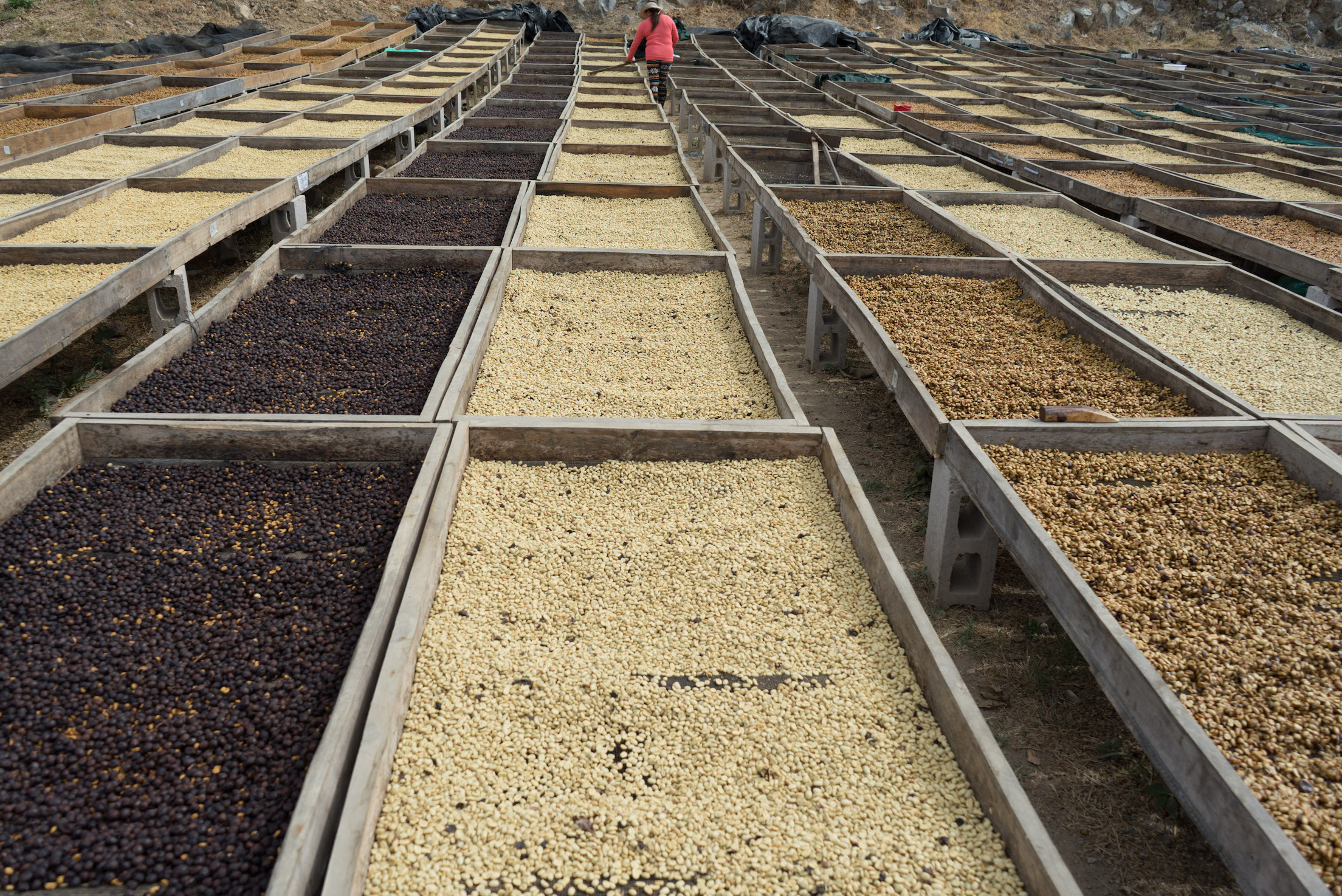
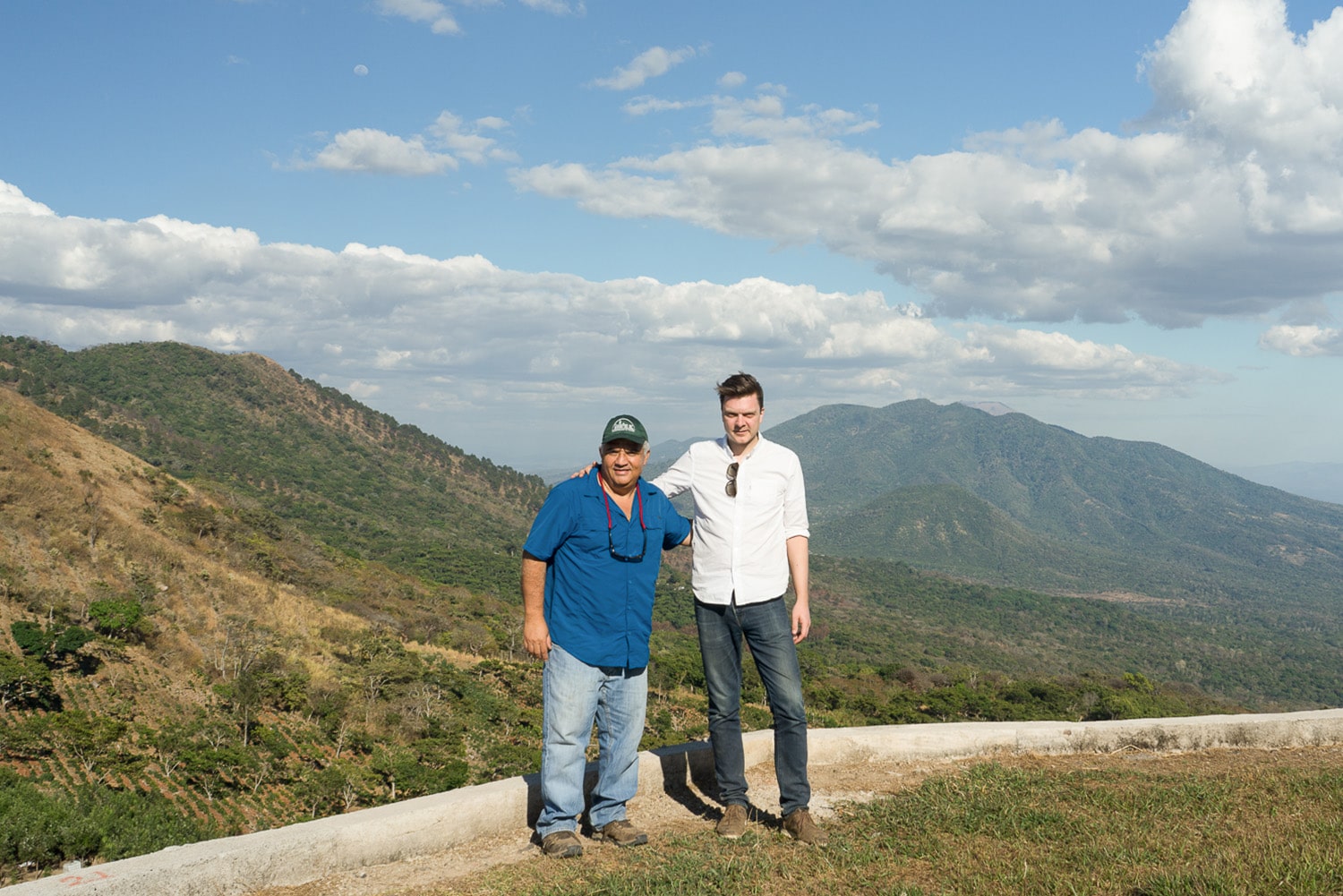
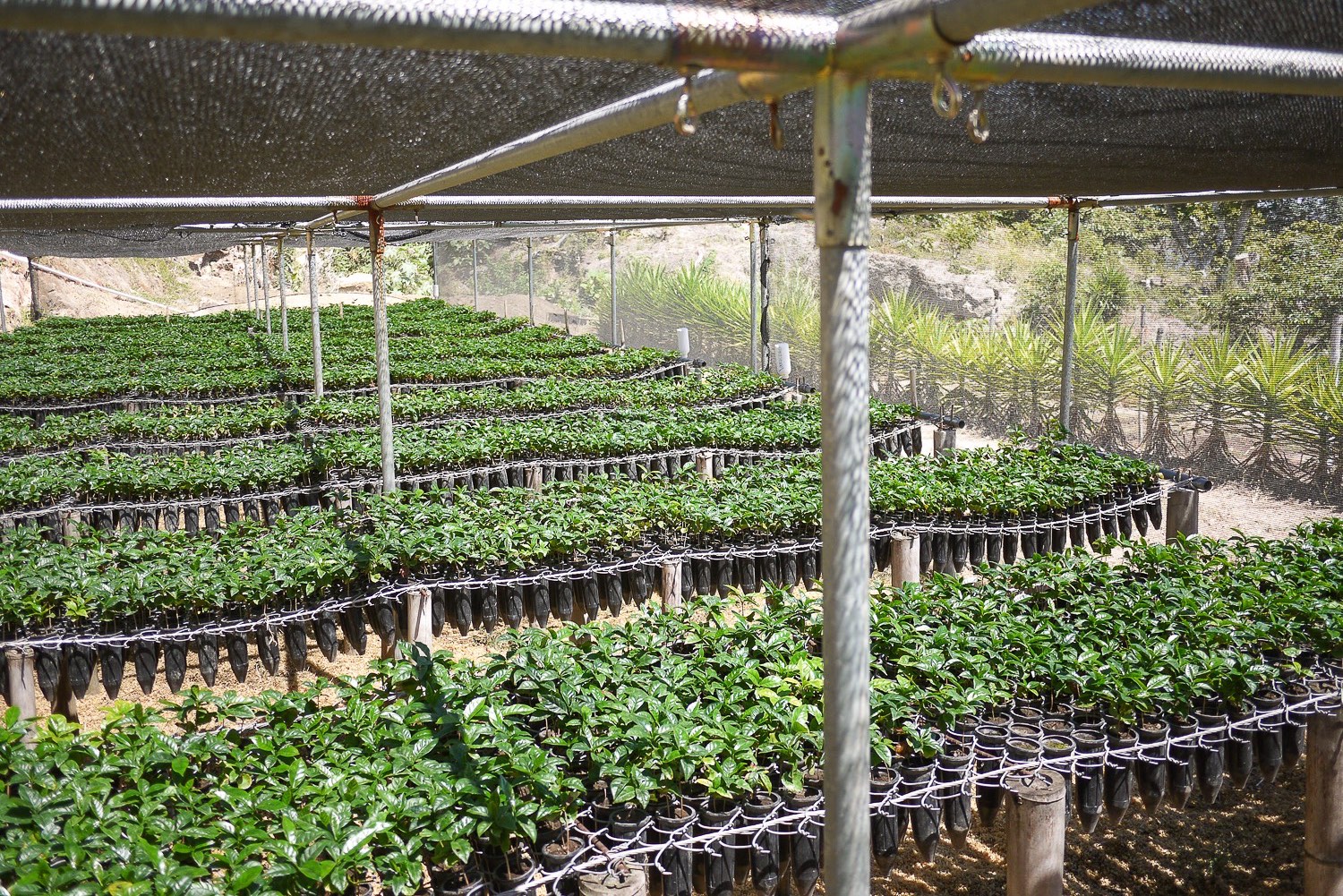
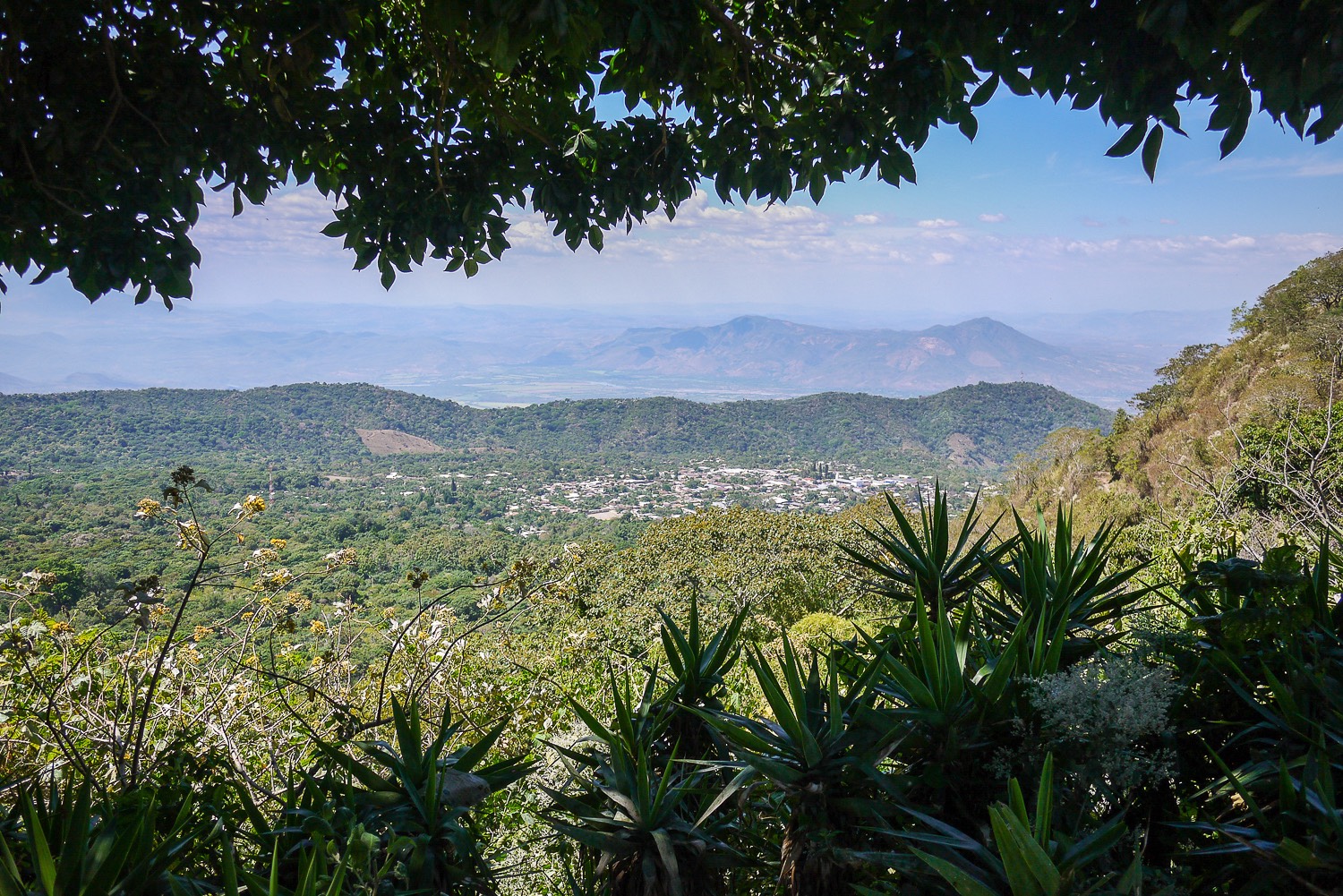
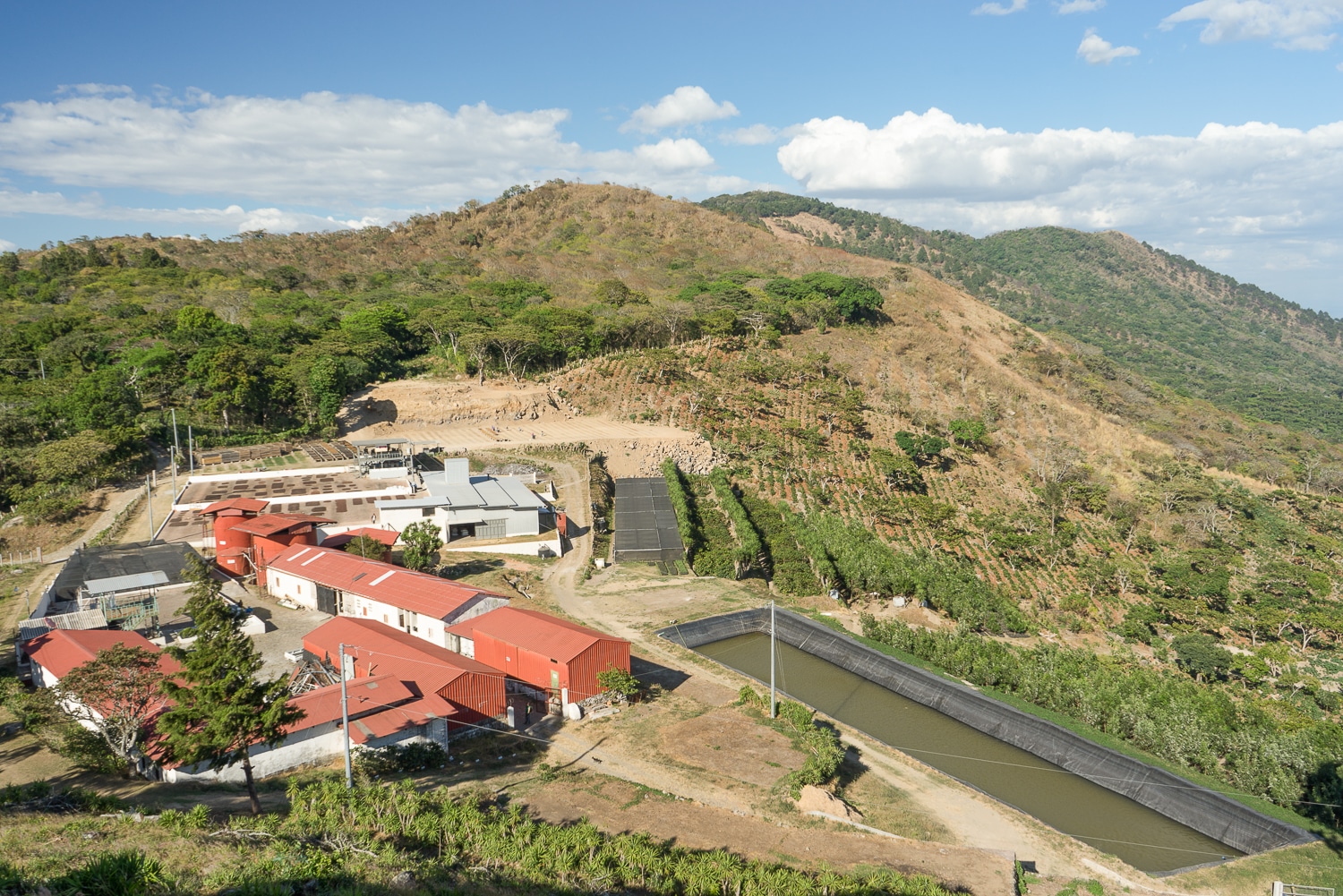
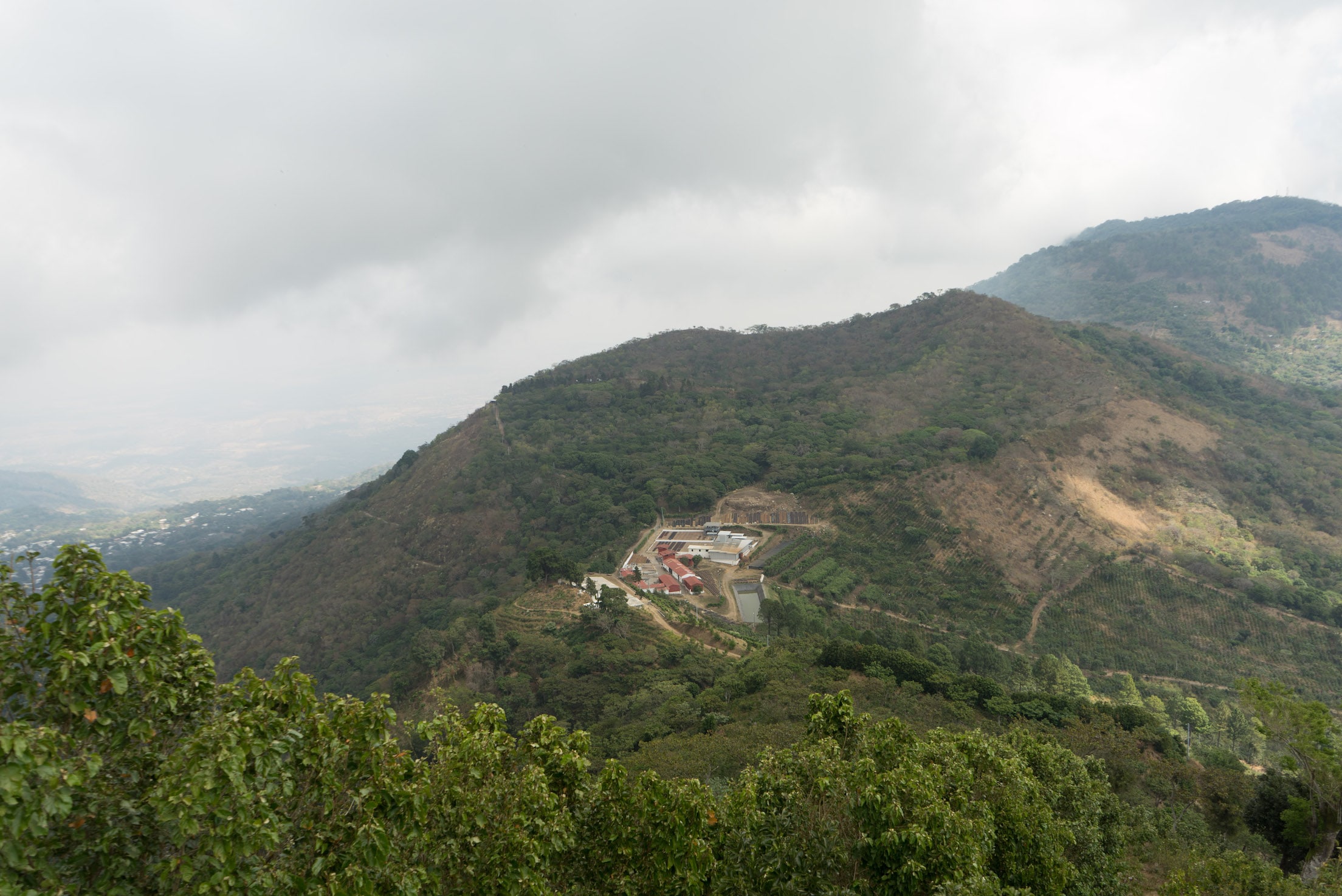
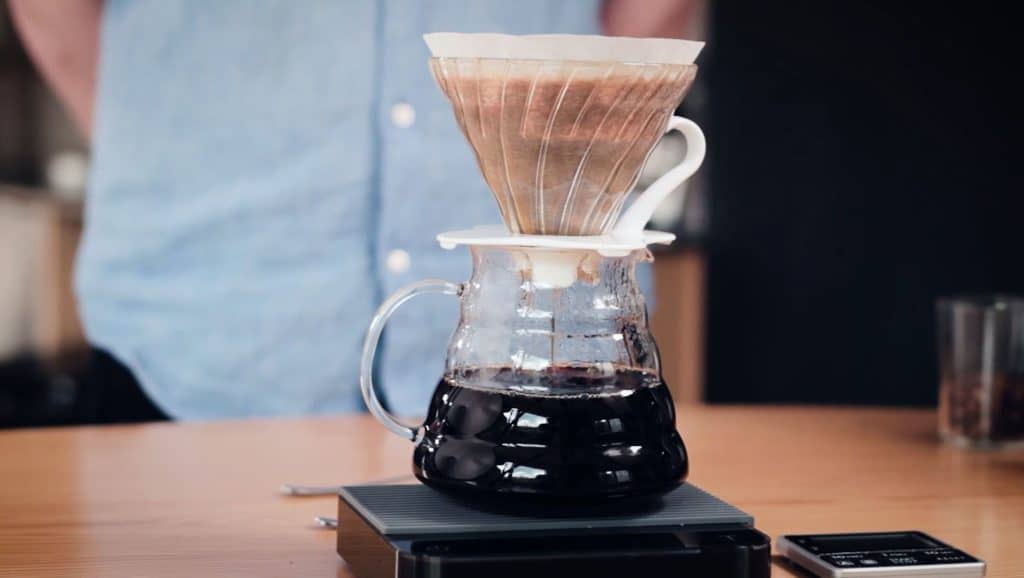
Browse our brewing guides to learn how to make great tasting coffee at home. No matter if you’re making french press, filter coffee, iced coffee or espresso – we’ll help you get the most out of your coffee.